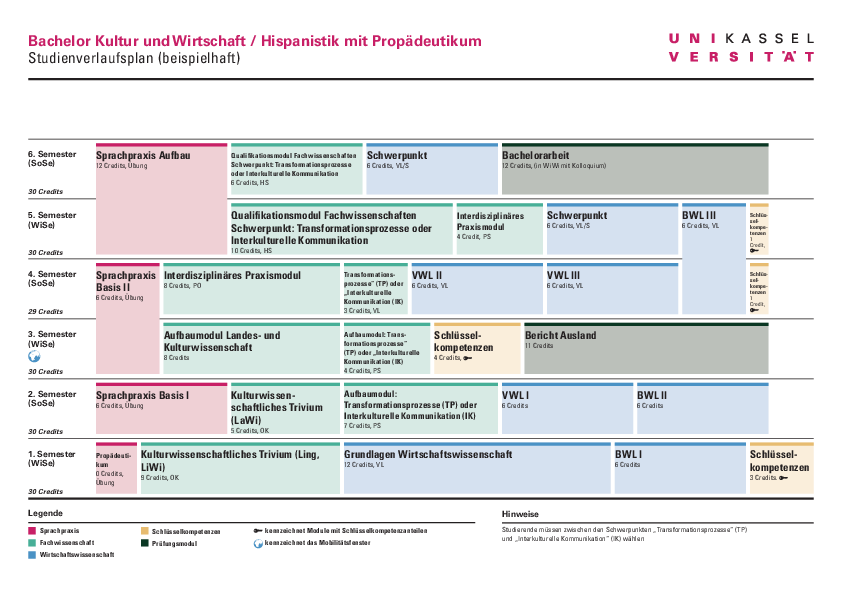How is the study program structured?
The content on this page was translated automatically.
In the program "Culture and Economy" eight modules are dedicated to the culture & language. After the basic modules students have to choose one of the two focal points: Transformation Processes or Intercultural Communication. A maximum of ten modules are devoted to economics. The remaining modules consist of the study abroad/abroad internship, an interdisciplinary practical module, the bachelor's degree module, and the key competencies.
The Fundamentals consist of modules 1-4: Language Practice I, II, and Structure, as well as the Cultural Studies Trivium, which introduces the fundamentals of literary studies, linguistics, as well as regional studies.
The advanced and qualification modules in the area of culture & language serve the specialization. The focus on transformation processes includes three modules in the area of literary and cultural studies, in which students deal in particular with education for sustainable development, sustainability in business, intercultural education, and transformative narrative and postcolonial theory. Students acquire the ability to participate in scholarly conversation about objects of cultural change.
The advanced and qualification modules in the area of culture & language serve the specialization. The focus on intercultural communication comprises three modules in the field of linguistics, in which students deal with linguistic working techniques, theories and issues. By working on selected topics such as linguistic culture and intercultural business communication, students are able to apply linguistic methods in a reflective and insightful manner to issues in the thematic focus.
In economics, the fundamentals of business administration and economics are taught. In the further course, specializations can be selected from a variety of modules, including controlling, marketing, supply chain and innovation management.
In this module, students acquire the ability, among other things, to carry out and present independent projects in the field of cultural education.
In the third but no later than the fifth semester, students complete a semester abroad or, alternatively, an internship of at least eight weeks in a Spanish-speaking country.
The topic of the Bachelor thesis is issued at the beginning of the sixth semester at the earliest, if the requirements specified in the examination regulations are met. The choice of topic is made according to the student's own research interests and in close consultation with the chosen examiner. The thesis can be written in German as well as in Spanish.
Key competencies enable students to acquire or deepen skills that are not directly related to the subject in order to complement their own profile. This can include intra- and/or extra-university engagement but also separate and designated courses of the University of Kassel, e.g. workshops of the practice coordination on content management programs or web editing.
